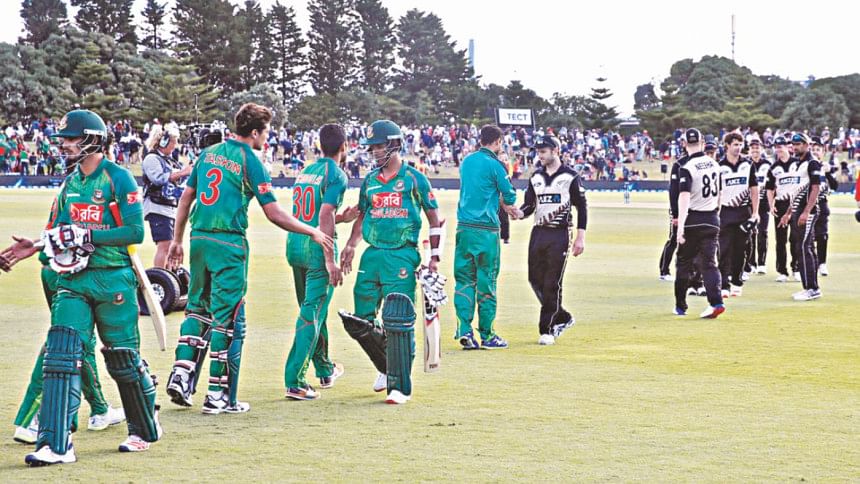Lapses cannot be overlooked

When the Bangladesh team flew to New Zealand after an expensive week-long camp in Sydney, hopes were high among the fans. There was much optimism, especially surrounding the limited-overs series as the Tigers have improved a lot in the shorter formats, but any avid cricket follower knew how tough the task was to carry the home form to conditions like New Zealand's.
So far, every early morning that the fans woke up, they woke up only to watch their beloved team's surrender to Kiwis. The end result was that the Mashrafe Bin Mortaza-led side lost all the limited-overs matches.
So what happened -- has Bangladesh suddenly become a bad team from a good team after the defeats in six matches? Certainly not.
For anyone aware of what happens to touring sides in different conditions around the world, the results of the Bangladesh team may not be shocking. Many were however surprised at the manner the Tigers played the three-match ODI and T20I series against the home side.
It was the team members and not any outsider who repeatedly said that they could not play collectively and they could not play their best cricket in the limited-over matches in demanding conditions.
Things got worse when they failed to capitalise on the opportunities they had created at certain periods of the matches in conditions that, except the higher bounce on offer, were not as awkward as some had expected in New Zealand.
Throughout the limited-overs series the question was not whether the Tigers lacked ability, but whether they could play as per their potential. One has to look deep if a team fails to play their best cricket and to their potential throughout two series, because then it's not only the mere question of a team's struggles in foreign condition; instead there may be a deeper ailment.
Those who closely watched the Tigers' performances in the different venues in New Zealand are bound to believe that the thrust was missing among the players and there was something wrong somewhere.
It is natural that bad things come to the fore when a team starts losing matches one after the other. There was no exception with the Tigers this time. But one cannot simply ignore the controversies surrounding some players' selection and team strategy. In particular, the selection of leg-spinner Tanbir Hayder gave a poor signal for future team selection. The way the Bangladesh Cricket Board (BCB) boss made public statements regarding selection issues was especially unfortunate.
It seems that one party can say anything they believe or want but the other is restricted under the code of conduct and can only discharge their frustration through off-the-record conversations.
It is in no way a healthy atmosphere for a team that has been gradually improving to put a strong footing on the world cricket map.
The signs were there that stamping out a proven selection system will not bring any good for Bangladesh cricket, so the incumbent BCB high-ups must rethink about an independent and strong selection committee rather than persist with the existing, peculiar two-tier system that involves so many people.
The world is not at an end for the Mashrafe's brigade following their defeats in the ODI and T20I series in New Zealand but it would be unwise to overlook the lapses.

 For all latest news, follow The Daily Star's Google News channel.
For all latest news, follow The Daily Star's Google News channel. 



Comments